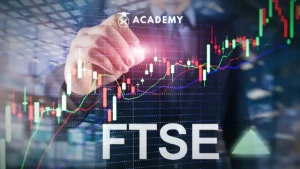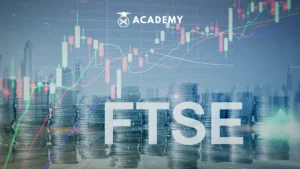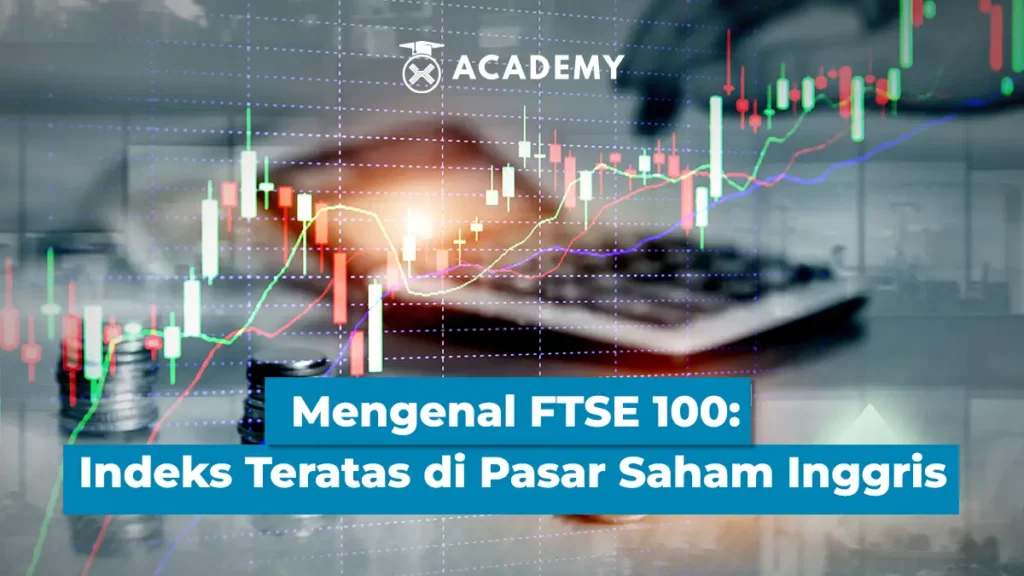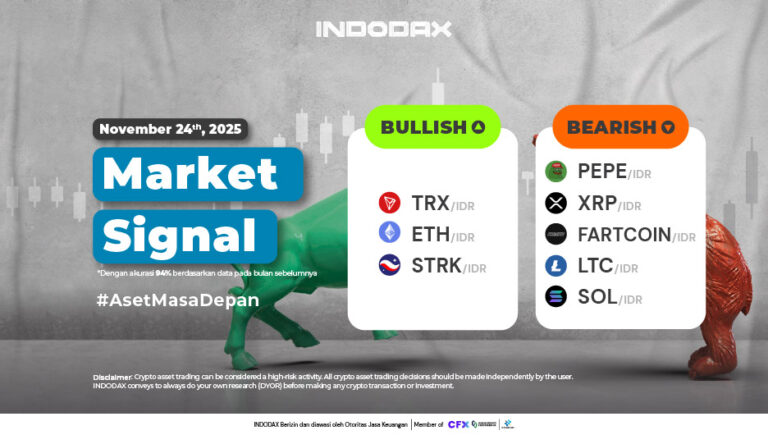The FTSE 100 Index, often referred to as “Footsie,” is one of the world’s most prominent stock indices and a primary reference for the UK capital market.
This index reflects the performance of the 100 largest companies listed on the London Stock Exchange (LSE) based on market capitalization.
Since its launch, the FTSE 100 has become an important indicator for investors, analysts, and economists in evaluating the economic conditions and performance of the UK stock market.
Now, to learn more about what the FTSE 100 Index is, starting from its history, the importance of this index, how to calculate it, its composition, to its top companies, see the full review below.
Also Read: What is Wall Street and Why Does It Have a Big Influence on Stocks?
What is FTSE?

FTSE or “footsie” is an acronym for FTSE Russell Group, formerly known as the Financial Times Stock Exchange Group. “The FTSE” also refers to the FTSE 100, the main index that tracks prices on the London Stock Exchange.
The London Stock Exchange Group (LSEG) owns the FTSE Russell Group, which creates and maintains a variety of indices that track global stocks, including the FTSE 100.
The indexing division of FTSE can be compared to the Standard & Poor’s division in the US. They create and publish indices that can be used as benchmarks by the global financial markets.
Essentially, an index is a hypothetical portfolio of stock holdings that serves as a representation or benchmark of the performance of a particular market segment.
Also Read: 8 Differences Between Nasdaq and NYSE: Choose Smartly, Gain Profit!
History of the FTSE 100
The FTSE 100 is widely used in Europe. When it was first launched in January 1984, the index had a base level of 1,000. Since then, it has peaked at over 7,000.
Many market analysts, traders and investors view the FTSE 100 as a proxy for the performance of the UK stock market as a whole, similar to how US investors monitor the Dow Jones and S&P 500 indices.
Why is the FTSE 100 Important?
The FTSE 100 is often seen as a leading indicator of the prosperity of UK companies and the UK economy as a whole.
As such, the index typically attracts the attention of investors looking to gain exposure to large UK companies.
While some of the companies listed on it are headquartered outside the UK, the majority are British companies and are affected by daily developments in the UK.
Also Read: American Stock Exchange Hours Indonesian Time
How the FTSE 100 is Calculated
The FTSE 100 level is calculated using the total market capitalization of the constituent companies and the index value. The total market capitalization changes along with the individual share prices of the listed companies throughout the trading day.
When the FTSE 100 is quoted up or down, the change is measured based on the previous day’s market closing price.
The index is calculated continuously every trading day—from 08:00 when the market opens until 16:30 when the LSE closes.
A decline in the FTSE 100 means that the value of the largest companies listed in the UK has decreased. When the FTSE reaches a new high, it shows that the total value of all listed companies has increased.
Compilation of the FTSE 100 Index
The FTSE 100 is recompiled every quarter through an evaluation carried out on the Wednesday after the first Friday in March, June, September, and December. This adjustment ensures that the listed companies continue to reflect current market conditions.
On the other hand, market capitalization determines the weight of stocks in the FTSE 100. Companies with larger market capitalizations have higher weightings so that their share price movements have a more significant impact on the index value.
This will help the FTSE 100 to provide an accurate picture of the performance of the UK stock market.
Top 5 Companies in the FTSE 100
As of June 22, 2024, here are the top five (5) companies in the FTSE 100 by market capitalization:
- AstraZeneca
- Shell
- HSBC Holdings
- BHP Group Ltd
- Unilever
Other FTSE Indices
In addition to the FTSE 100, there are several other indices that are also important in the UK stock market, namely the FTSE 250, FTSE 350, and FTSE All-Share.
Each of these indices has a different focus and scope, providing a more complete picture of the condition of the UK stock market. Here is a brief explanation of each of these indices.
1. FTSE 250
This index covers the 250 largest companies after the FTSE 100, representing the mid-cap sector in the UK stock market. The FTSE 250 provides a snapshot of the performance of mid-cap companies that often focus more on the domestic market.
2. FTSE 350
This index is a combination of the FTSE 100 and FTSE 250, covering a total of 350 of the largest companies in the UK. The FTSE 350 provides a comprehensive view of the large and mid-cap companies in the UK stock market.
3. FTSE All-Share
This index covers all companies listed on the FTSE 100, FTSE 250, and FTSE SmallCap, offering the most comprehensive representation of the UK stock market.
The FTSE All-Share covers all market capitalizations, providing a complete picture of stock performance across sectors.
How to Invest in FTSE?

While you can’t invest in the index directly, you can invest in funds that replicate, track, or even short the FTSE index.
Many of these funds are exchange-traded funds (ETFs). Examples of funds that track the index include the Vanguard FTSE 100, Vanguard FTSE 250, iShares 350 U.K. Equity Index Fund, iShares Core FTSE 100, and Vanguard FTSE U.K. All Share Index Unit Trust.
Also Read: What is the S&P 500? The Complete Beginner’s Guide to Investing!
Comparison with US Indices
The most frequently quoted FTSE index is the FTSE 100, which tracks the top 100 companies by market capitalization in the UK. When financial media reports that London stocks are up or down, they are referring to the FTSE 100.
The US version of this index is the S&P 500, which tracks the top 500 US companies by market capitalization, or the Dow Jones Industrial Average (DJIA), which tracks the top 30 US companies.
Conclusion
So, that was an interesting discussion about Getting to Know the FTSE 100: The Top Index in the UK Stock Market that you can read more about at the crypto Academy at INDODAX Academy.
In conclusion, the FTSE 100 plays an important role in investment and the UK economy. As a leading indicator of stock market health, this index reflects the performance of the 100 largest companies in the UK, which contribute significantly to the economy.
Many investors rely on the FTSE 100 to gain exposure to large, stable companies and to gauge overall economic trends.
For investors, considering investing in the FTSE 100 can be a smart move for portfolio diversification and long-term growth potential.
By understanding the dynamics of this index, investors can make more informed and strategic decisions in achieving their financial goals.
As an interesting information, INDODAX will soon launch a new investment option consisting of leading stocks from the United States!
Now, in addition to investing in crypto, you can also expand your portfolio with more than 50 stocks from major US companies, all accessible through one INDODAX account.
So, prepare yourself to be one of the first to enjoy access to broader and more flexible investments, only at INDODAX!
5 FAQ
1. What is the FTSE 100?
The FTSE 100 is an index that tracks the 100 largest companies by market capitalization listed on the London Stock Exchange.
2.Why is the FTSE 100 important for investors?
The FTSE 100 is considered an indicator of the performance of large companies in the UK and can provide insight into the health of the country’s economy.
3.How is the FTSE 100 calculated?
The FTSE 100 is calculated based on the total market capitalization of all listed companies, with a greater weighting given to companies with higher market capitalizations.
4.Who are the top five companies in the FTSE 100?
The top five companies as of 22 June 2024 are AstraZeneca, Shell, HSBC Holdings, BHP Group Ltd, and Unilever.
5.How do you invest in the FTSE 100?
Investors can invest in the FTSE 100 through funds that track the index, such as ETFs, such as the Vanguard FTSE 100.





 Polkadot 8.91%
Polkadot 8.91%
 BNB 0.45%
BNB 0.45%
 Solana 4.80%
Solana 4.80%
 Ethereum 2.37%
Ethereum 2.37%
 Cardano 1.65%
Cardano 1.65%
 Polygon Ecosystem Token 2.13%
Polygon Ecosystem Token 2.13%
 Tron 2.85%
Tron 2.85%
 Market
Market


